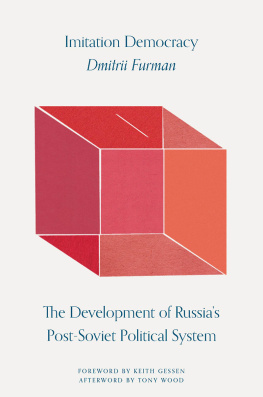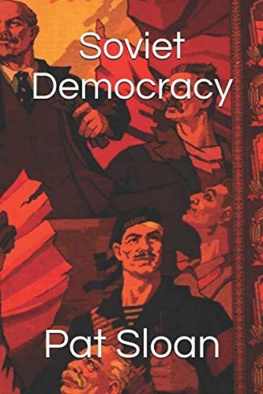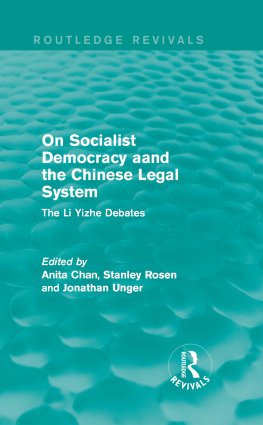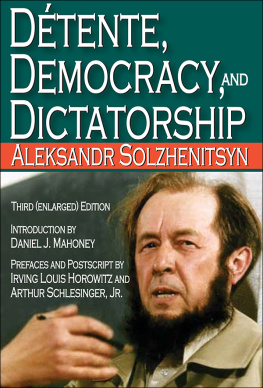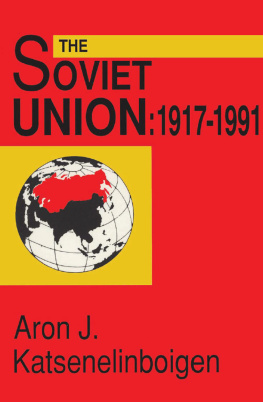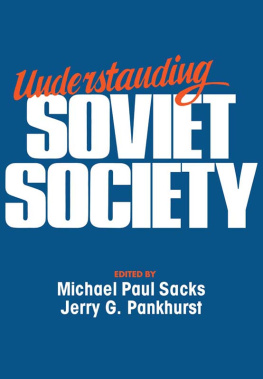Soviet Democracy and Bourgeois Democracy
The question of democracy, of how it is to be correctly understood, of the fundamental distinction between Soviet socialist democracy and bourgeois democracy is a highly important question of our time.
Since the Great October Socialist Revolution there have been revealed to the full the great advantages possessed by Soviet socialist democracy, and the decay, crisis and utter decline of bourgeois democracy.
The Great Patriotic War of the Soviet Union against Hitler Germany showed the invincible strength of the Soviet social and state system. The war showed that "...the Soviet social system is a better form of organization of society than any non-Soviet social system." The war showed that the Soviet system of state is the best state system ever known to history.
The Soviet State, Soviet socialist democracy emerged from the war stronger than ever. And now, after the close of the war, Soviet democracy is blossoming forth anew, is achieving new successes.
In a number of European countries - Bulgaria, Czechoslovakia, Poland, Albania, Rumania, and Hungary - the system of People's Democracy has been established. The peoples of these countries displayed self-sacrifice and heroism in the struggle against the fascist oppressors. Having, with the aid of the Soviet Army, secured their liberation from the Nazi yoke, they set about building a democratic order in their countries, but in a new fashion, in a way that rejected the old models of bourgeois-parliamentary democracy. The democracy that arose in these countries assumed new forms, of a higher type than those of the old bourgeois-parliamentary democracy. In these countries democracy is being extended and developed on a scale that indicates that the workers and peasants are really being involved in the administration of the State and that is making the blessings of democracy actually available to the wide masses of the people. New forms of organization of the State have thus arisen which constitute a big advance on the bourgeois democratic states and are opening up the possibility for further progress by these countries on the road to Socialism.
The war also revealed tremendous defects in the old bourgeois-parliamentary forms of democracy. The course of historical development had proved irrefutably that the bourgeois-democratic states, as a result of their flirting with fascism, and their concessions to fascism during the period that preceded the second world war, were in fact - at the beginning of the war - helpless to meet the danger that threatened all the achievements of civilization and democracy, and the free national existence of these countries. The war showed that it was only thanks to the Soviet Union and to the decisive part it played in routing the Nazi aggressors that European civilization was saved from destruction.
* * *
The basic feature of bourgeois democracy, as has been repeatedly noted in the works of the classics of Marxism-Leninism is the fact that it is democracy for the exploiting minority and is directed against the majority. Speaking of bourgeois democracy, Lenin and Stalin pointed out that it undoubtedly constituted progress as compared with feudalism and mediaevalism. The working class has used and endeavours to use the framework of bourgeois democracy so as to develop the class struggle, to set up and consolidate its class organizations. But while Lenin and Stalin pointed to this significance of bourgeois democracy for the working class, they also constantly indicated that bourgeois democracy, based as it is on the dominance of private ownership of the means of production, is formal, false and truncated democracy. "Bourgeois democracy," wrote Lenin, "although a great historical advance in comparison with mediaevalism, always remains - and under capitalism cannot but remain - restricted, truncated, false and hypocritical, a paradise for the rich and a snare and a delusion for the exploited, for the poor."
Those who uphold bourgeois democracy use fine phrases about "equality," "liberty" and "fraternity" in an endeavour to hide the actual
domination of the exploiters over the exploited, which is based on the private ownership of the means of production.
Lenin pointed out that general phrases about liberty, equality, democracy are in fact nothing more than the blind repetition of concepts copied from the relations of commodity production. "From the point of view of the proletariat," wrote Lenin, "the question can be put only in the following way: freedom from being oppressed by which class? equality between which classes? democracy based on private property, or on the struggle for the abolition of private property? - and so forth."
Employing all the rigour of Marxist analysis, Lenin and Stalin unmasked bourgeois democracy and placed the issue on the only correct and scientific basis.
Comrade Stalin, in his report on the Draft Constitution of the U.S.S.R. said the following: "They speak of the equality of citizens, but forget that there cannot be real equality between employer and workman, between landlord and peasant, if the former possess wealth and political weight in society while the latter are deprived of both - if the former are exploiters while the latter are exploited. Or again: they speak of freedom of speech, assembly, and the press, but forget that all these liberties may be merely a hollow sound for the working class, if the latter cannot have access to suitable premises for meetings, good printing shops, a sufficient quantity of printing paper, etc."
When elucidating the specific features of the history and traditions of bourgeois democracy in each country, the classics of MarxismLeninism pointed out at the same time that "... the most democratic bourgeois republic is a machine for the oppression of the proletariat by the bourgeoisie."
What distinguishes the epoch of imperialism from the preceding period, the epoch of free competition, is the fact that under imperialism state activity is marked by a turn, all along the line, to political reaction. In both foreign and home policy imperialism strives to violate democracy and establish reaction. These reactionary strivings of imperialism are being displayed more and more glaringly in the political life of present-day England and the U.S.A. This, however, does not prevent those who defend imperialism from talking without end about all the different "freedoms" that are supposed to be part of bourgeois democracy.
Let us, for example, take the question of the so-called "freedom of the press" in bourgeois countries. The fact that a multitude of newspapers of various trends is published in foreign countries, that arguments ensue among these papers on various secondary problems, that different viewpoints are expressed, that criticism is occasionally levelled in these newspapers at those who captain the bourgeois ship of state - all this is lauded to the skies by the advocates of bourgeois democracy. They bring these points forward as evidence of the freedom of the press that is supposed to exist in the bourgeois countries.
Actually, however, the so-called "freedom of the press" in bourgeois society means nothing more than freedom for the capitalists to control the press and to "shape" public opinion to suit their own interests. "Freedom of the press in capitalist society," said Lenin, "means freedom to trade in the press and in influencing the masses of the people. Freedom of the press means maintaining the press, a most powerful instrument for influencing the masses of the people, at the expense of capital." Such is the real worth of bourgeois freedom of the press.
The false character of the so-called freedoms, particularly freedom of the press, has even had to be admitted by many publicists and sociologists who defend bourgeois democracy.


